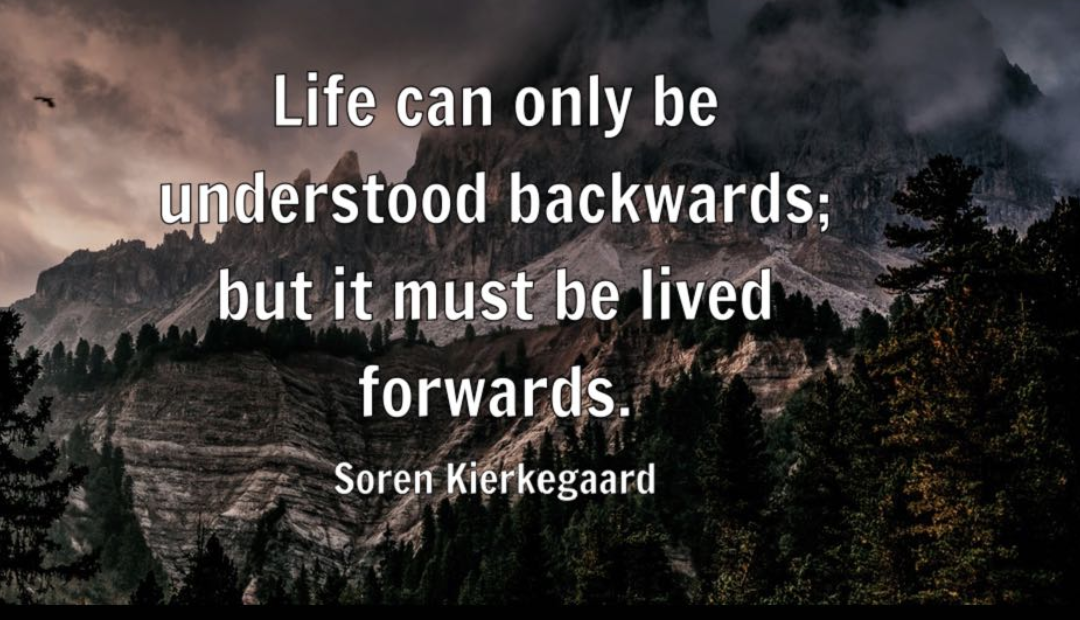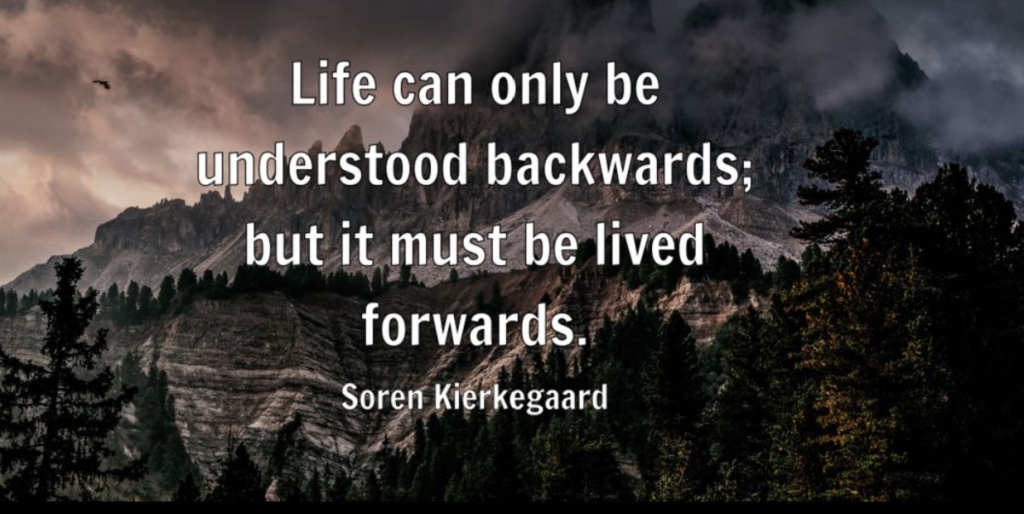Soren Kierkegaard, a Danish philosopher, said: “Life can only be understood backwards; but it must be lived forwards.”
I find insights into many people’s grief journeys, including my own, in this declaration.
From the moment it starts, that pivotal moment where we learn with absolute certainty that our lives will never be the same again, we begin moving backwards to find understanding.
What happened? How could that have happened? Why did it happen?
I think it is common to start out with a focus on how they died in a futile effort to make sense of what can’t be comprehended.
But if we find the support to learn to mourn in communion and connection with companions on this journey, we often seek understanding further backwards – to who they are. We recall their ‘divine spark’ stories. We remember the depth of our love . . . and come to understand why the hurt of their loss is so deep.
Eventually, we begin to believe that we will survive. We do the work to begin rebuilding our lives, fitting together the pieces that still matter, discarding those that don’t, and creating the rest. We decide to live, building on the knowledge we gained in that backward exploration.
Our grief journeys can be scary, frustrating, painful, and potentially beautiful. We discover clarity in understanding what matters to us now, the empowerment to act on that discovery, and the resilience to make course corrections while we move forward.
But we can only do it one moment at a time. Kierkegaard’s quote reminds us that we must consciously move through a series of present moments to create a meaning-filled future.
It’s not easy. It may feel impossible at times. It’s rarely a dramatic transformation. Just small steps made with intention – based on knowledge of the past, but not limited by it.
“The past is history, the future is a mystery, but today is a gift – that’s why they call it the present.”




Recent Comments